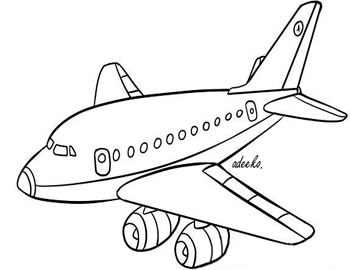ALSO READ: N1. 2bn fraud: EFCC opens case against Fayose
The implication of flying aircraft that are already showing evidence of disability of age and/or pressure of use goes beyond the poor quality of service that many of the domestic airlines are known for. There is also the inherent danger in flying such old and overused aircraft, a situation that tends to rob the airlines of the patronage of discerning air travellers and that ultimately results in or contributes to sub-optimal revenue performance. It is little wonder therefore that only very few of the domestic airlines are doing fairly well in terms of profit performance, which is one of the critical factors that can keep an entrepreneur in business in the medium and long term. The worrisome mortality rate of airlines in the country derives essentially from this sordid state of affairs.
Sadly, but somewhat unsurprisingly, the revelation that Nigeria’s commercial airlines fly the oldest aircraft in the African continent is an indication of general perverted values in the country. Virtually every one cuts corners without regard for the potential consequences of such reprehensible action. And in the aviation sector where investments are necessarily capital-intensive, the temptation to circumvent standard requirements is even greater. But, ironically, aviation business is the type where failure to conform to standards is more often than not attended by dire consequences. Thus, it is important that investors in the sector are those that have the capacity both in terms of resource requirements and the ethical values needed to embrace the industry’s international best practices at all times.
It is the duty of the industry’s local official regulators to ensure that this happens. In other words, there is a sense in which the current worrying situation is symptomatic of collapsed institutions and/or dereliction of duties by the regulators. Or how can the country’s airlines be flying very old aircraft with the associated risks and disadvantages and the regulators do not raise a flag? Worse still, it took the activation of the industry’s international self- regulatory mechanism for this egregious lapse to come to light. This is most unacceptable. Yes, the country may seem to be familiar with and more or less condone sloppy performances by official regulators, but there are certain sensitive sectors where excellence is the irreducible minimum that can be tolerated. The aviation sector belongs to such sensitive sectors essentially because of the international dimension to the industry by way of the stringent requirements to obtain permit to engage in the business, and more importantly, the often calamitous repercussions of coming short.
While the Federal Government carries on with its much-touted aviation sector reforms, official actions should go beyond the claimed improvement in airport facilities and the general ambience. The quality of the aircraft assets in the fleets of Nigeria’s airlines should be reviewed, while areas of and framework for official assistance should be developed in order to ensure conformance to standards and international best practices. Perhaps the lightest of the predictable consequences of flying old and fuel-inefficient aircraft is the unprofitability of the aviation business which ultimately results in job losses when the business stops operations. And it is axiomatic that the country’s economy can ill afford further job losses. It is, therefore, in the enlightened self-interest of the country that the indigenous airlines are given a hand officially and properly positioned to compete globally while they still remain essentially private sector-driven.






